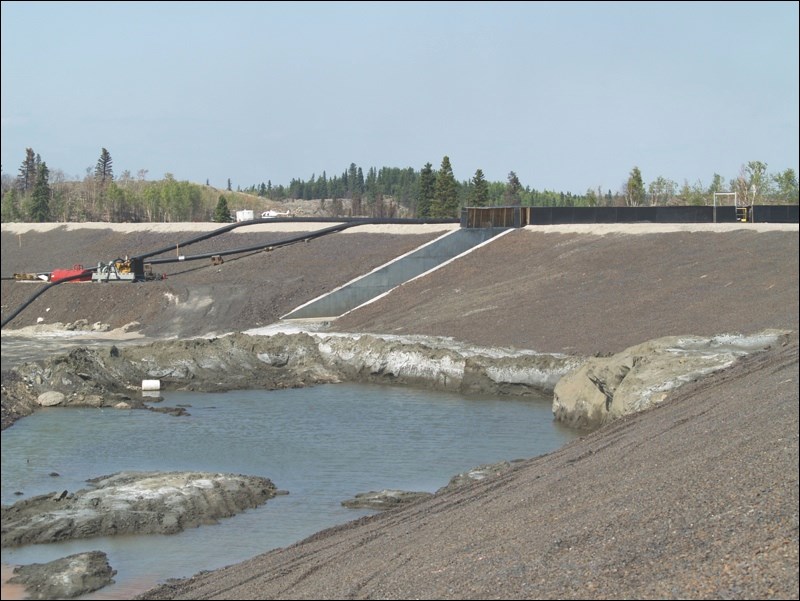Hudbay has no plans to tap into valuable metals that may remain trapped within decades of mine waste near Flin Flon.
While some view metal-laced tailings as a hidden source of riches for mining companies, Hudbay believes this type of processing wouldn’t make sense at this time.
“Current technology for extraction and treatment are not commercially viable and do not adhere to our criteria of optimization,” said Rob Winton, vice-president, Manitoba Business Unit for Hudbay.
Winton couldn’t estimate the value of metals within the Flin Flon tailings pond, formally known as the Flin Flon Tailing Management Facility, or TMF.
“The Flin Flon TMF has been in operation for over 80 years and through many iterations of processing technologies,” he said. “While there will have been varying degrees of recoveries through those processes, the value of metal in the [TMF] is subjective and would be based on the costs to treat and the recoveries that any future process could achieve.”
Asked whether companies have approached Hudbay regarding tailings remediation in Flin Flon, Winton said there have been inquiries over the years to review and discuss the treatment of mine waste.
“We will continue to review these inquiries as they are presented, ensuring any plan minimizes our environmental footprint and offers a technological solution that is financially responsible,” he said.
The notion of mineral extraction from mine waste has gained national attention in recent years thanks in large part to a now-failed plan to establish a tailings remediation facility in Snow Lake.
Toronto-based BacTech Environmental Corp. had hoped to build a facility that would neutralize – and extract tens of millions of dollars of gold from – a stockpile of tailings left over from the long-idle New Britannia gold mine.
In September 2014, BacTech said the Snow Lake project lacked the dollars to proceed. The company is now focused on a tailings project in Bolivia.
While Hudbay now owns the former New Britannia site, it does not own the tailings stockpile. The stockpile remains the responsibility of the Manitoba government, which has recommitted to neutralizing the tailings now that BacTech appears to be out of the picture.
Winton said he was not privy to BacTech’s plans for the stockpile and would not comment on the viability of treating the tailings.
But he did say Hudbay has no plans to pursue treatment of the stockpile given his understanding of technological and financial risks associated with those tailings.
When it was still active in Snow Lake, BacTech signed a Memorandum of Understanding with Hudbay to potentially treat tailings from the company’s Anderson TMF near Snow Lake.
Winton said Hudbay will look to expand the structure of the Anderson TMF given the company’s longer-term future in Snow Lake.
Mine tailings created decades ago may contain notable amounts of metals because of inefficient processing methods of the past. In 2011, BacTech estimated the Snow Lake stockpile contained about $100 million worth of gold.




